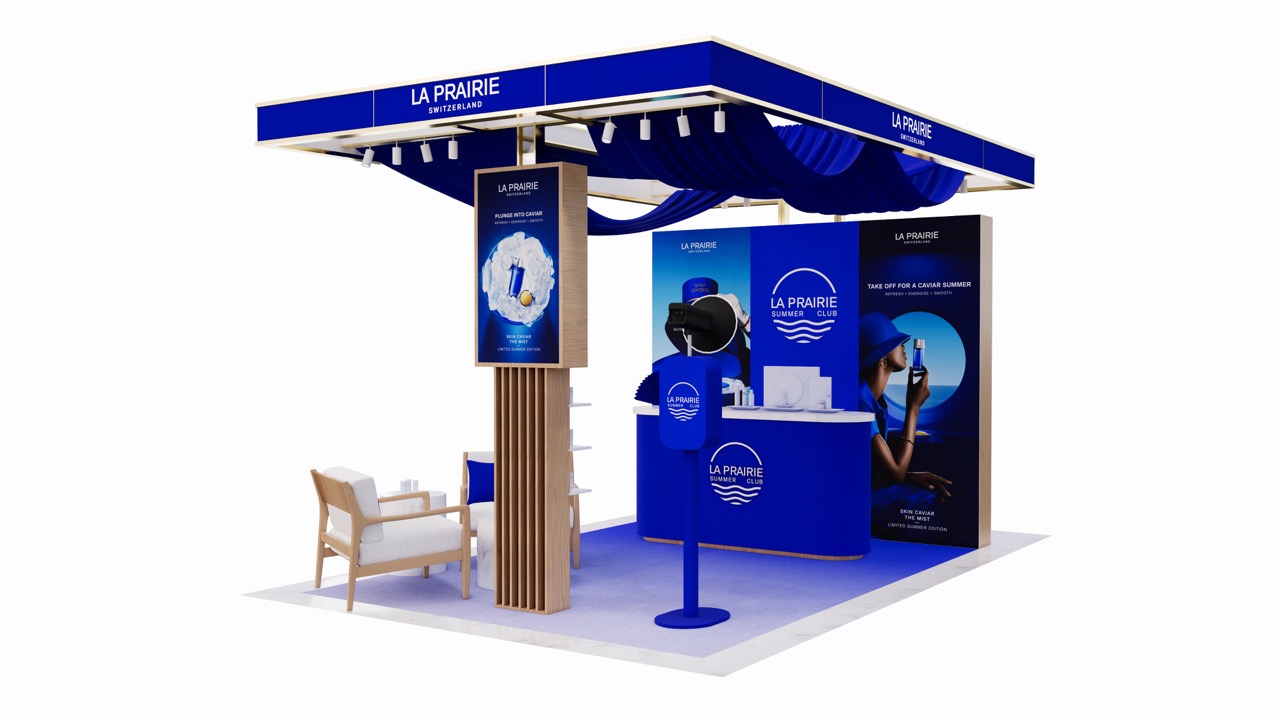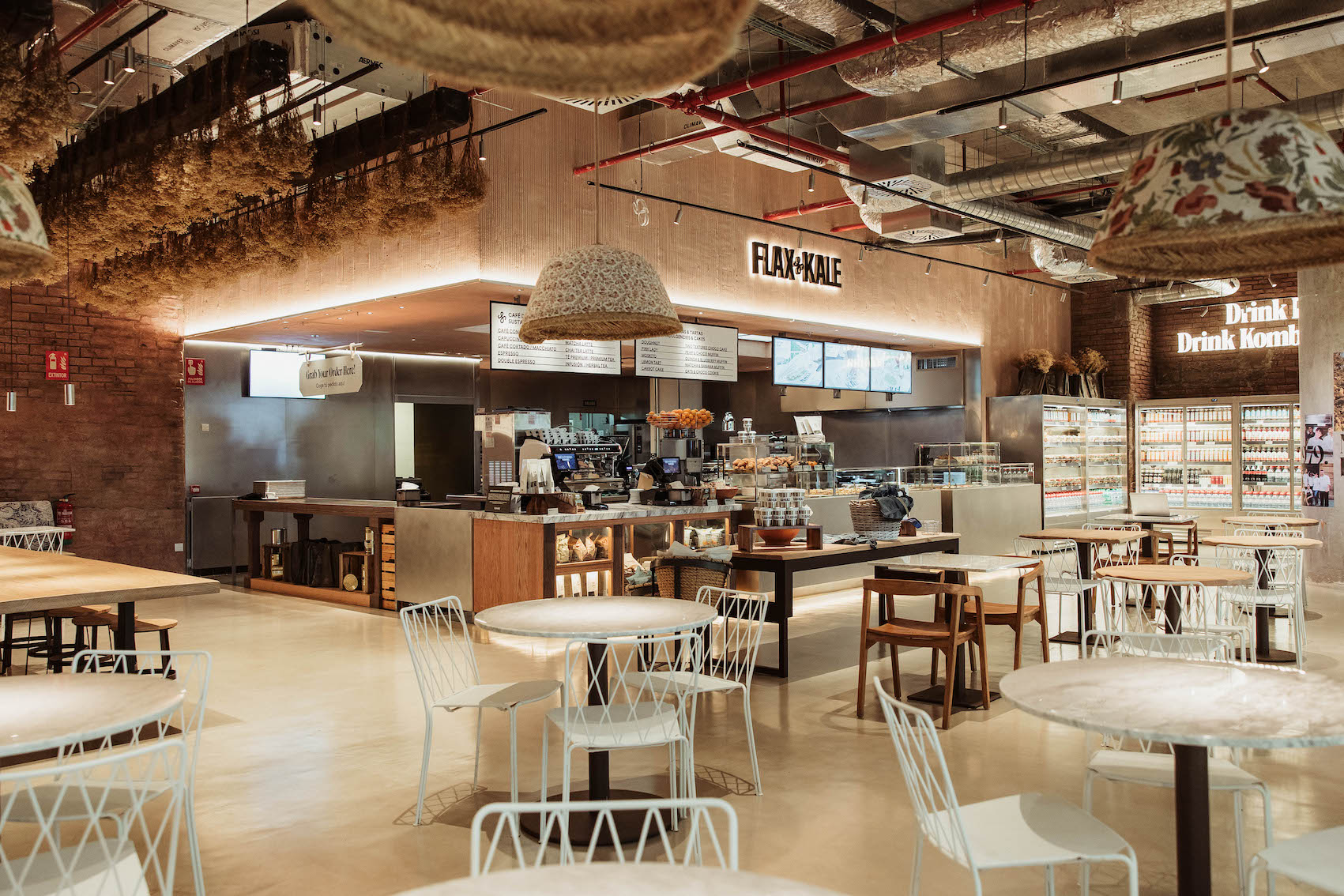UAE/INTERNATIONAL. International Diplomatic Supplies (IDS) has launched IDS Europe, a new company to offer ‘a taste of home’ to diplomats representing European states worldwide. IDS said it would also ensure an “efficient, diverse, and cost-effective delivery service” to missions in European capital cities.
Established in London in 1997, IDS has grown to become a leading supplier of duty free goods to the international diplomatic corps.
The IDS purchasing team has partnered with brand owners, notably in wines, beers and spirits, to find a well-priced offer that is representative of each region. The focus is on ensuring a diverse range, said IDS, including many organic and biodynamic wines, from wineries across France, Germany, Italy, Spain and the world.
IDS Group Founder and CEO Patrick Doyle said: “We have brought together an incredible product portfolio. We have over 1,700 wines, 650 spirits brands, nearly 200 beers, with a dynamic stock holding. We are also offering 3,500 European grocery brands. We have recruited a fantastic sales team from across Europe, with passionate Italian, Dutch, French, Belgian, Spanish, Russian and German salespeople, led by IDS Group Export Sales Director Joe Swords.”
IDS Europe Managing Director Leon Ashford said: “We are excited to bring the IDS levels of customer service through our European office, to diplomats in some of the most challenging postings in the world, as well as across Europe.”
The expansion follows the launch of IDS Miami in October 2020. The US-based company offers American diplomats worldwide US groceries, frozen foods, US wines, liquor, craft beers plus an array of major international brands.

Headquartered in Dubai, IDS Group now delivers to diplomats and international organisations in 60 countries worldwide. The group, known for its support of children’s charities, has increased funding for CSR projects during the coronavirus pandemic and undertaken to pay for the scholarships of nurses in Haiti through a collaboration with Life Skills Haiti.
IDS also recently committed to measure its carbon emissions, reducing what it can and offsetting more. IDS has confirmed South Pole as a third party to audit this process. South Pole is a market leader in emissions calculations and helps companies on their journey towards sustainability.
IDS said it was the only diplomatic supplier to be a registered member of the UN Global Compact, and as such no longer produce brochures that must be couriered around the world. Its full offer is available at www.i-d-s.com/europe.
Interview: Patrick Doyle on expansion, targeting US$100 million in turnover and giving back
In a Podcast released a year ago, on 1 July 2020, Martin Moodie spoke to IDS Chief Executive Patrick Doyle about his journey from start-up in in South London to the creation of IDS in 1997, the opening of a Dubai base in 2010 and through the COVID-19 crisis – during which the company continued to grow despite the impact of the pandemic.
In this interview we pick up the impressive entrepreneurial business tale, hear more about the creation of IDS Europe, how the new ranges are being built, and also how IDS is working to build a new, improved reputation for the diplomatic supply sector. We also speak about Doyle’s passion for philanthropy, support for charity and in particular how IDS Miami is changing lives and offering opportunities in one of the poorest countries in the world, Haiti.
The Moodie Davitt Report: Tell us more about the creation of IDS Europe. What drove it and how are you structuring it?
Patrick Doyle: We aim to provide European diplomats around the world with a perfect ‘taste of home’ alongside the international brands they expect. To achieve that we have taken on salespeople across the region and from under one roof we will offer goods sourced from their own countries to embassies and diplomats around the world.
As part of this process, we have taken over full ownership of Diplomatic On Top in Brussels, a supply company we bought 60% of in 2019, becoming 100% on 1 July. Brussels will be supplied from there and the rest of the business becomes IDS Europe.
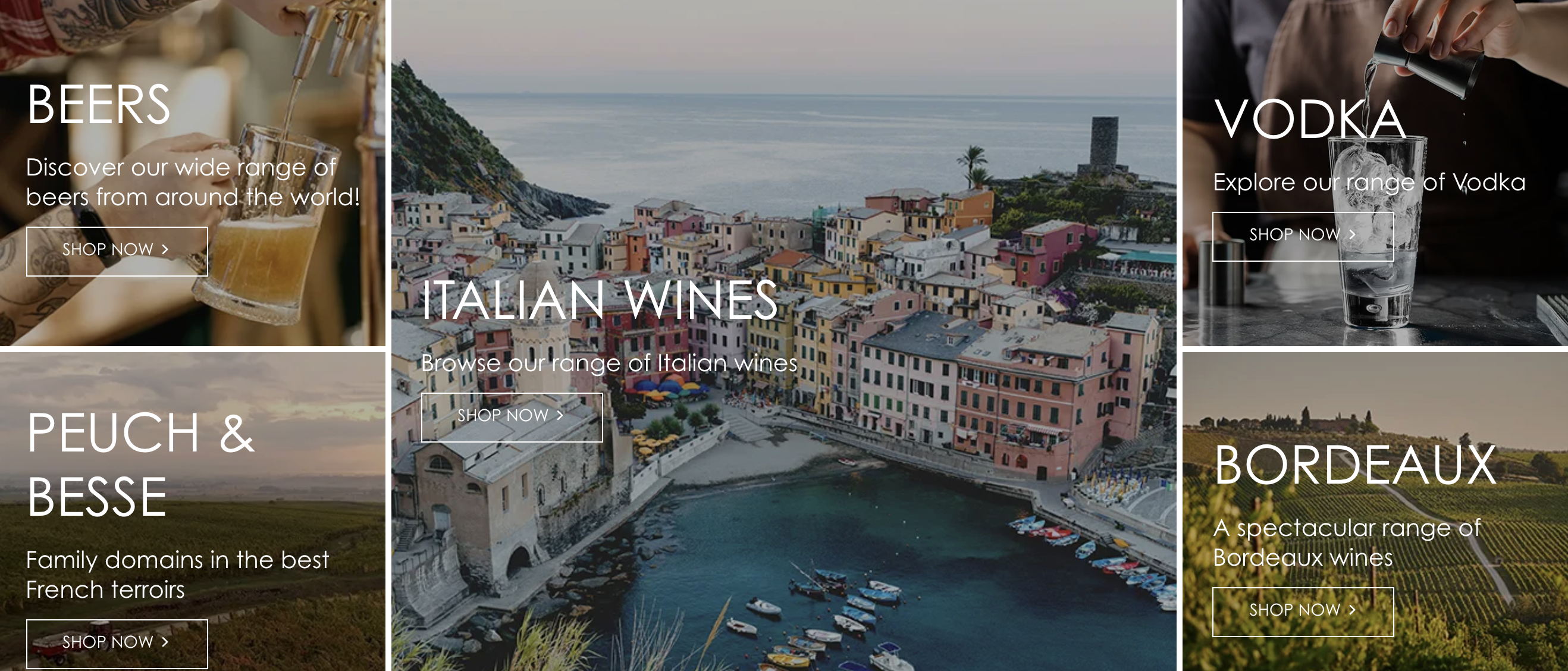
This is an all-encompassing project. Everyone at IDS is under pressure to make it deliver but as a customer-focused company we are so excited to do this.
It will transform how we do business and hopefully how embassies purchase their supplies. If one looked around the world five years ago, among the diplomatic suppliers you had IDS in the UK, you had other companies in Italy, Spain, Netherlands and so on all selling to diplomats from their own home market.
So rather than the Italian company selling to Italian diplomats with their Italian range, and Spanish or German companies doing the same, we are bringing the service under one umbrella for the first time and consolidating shipments to a group of European embassies. Every embassy can place a small order for their 20 or so people, and if all of their colleagues at other embassies do the same you can fill a container that can be shipped competitively and delivered to their doors. This hasn’t happened before with such a vast range under one roof.
Tell us about that range, and how you are tailoring it to different nationalities.
We felt that our range was not as deep or diverse as it could have been before. Our Italian wine range would have been an Anglo-Saxon wine range, chosen by people sitting in the UK, perhaps with wines bought and sold in the UK market. Here we have gone to specialists, to buy not 80 but 350 Italian wines and be more diverse.
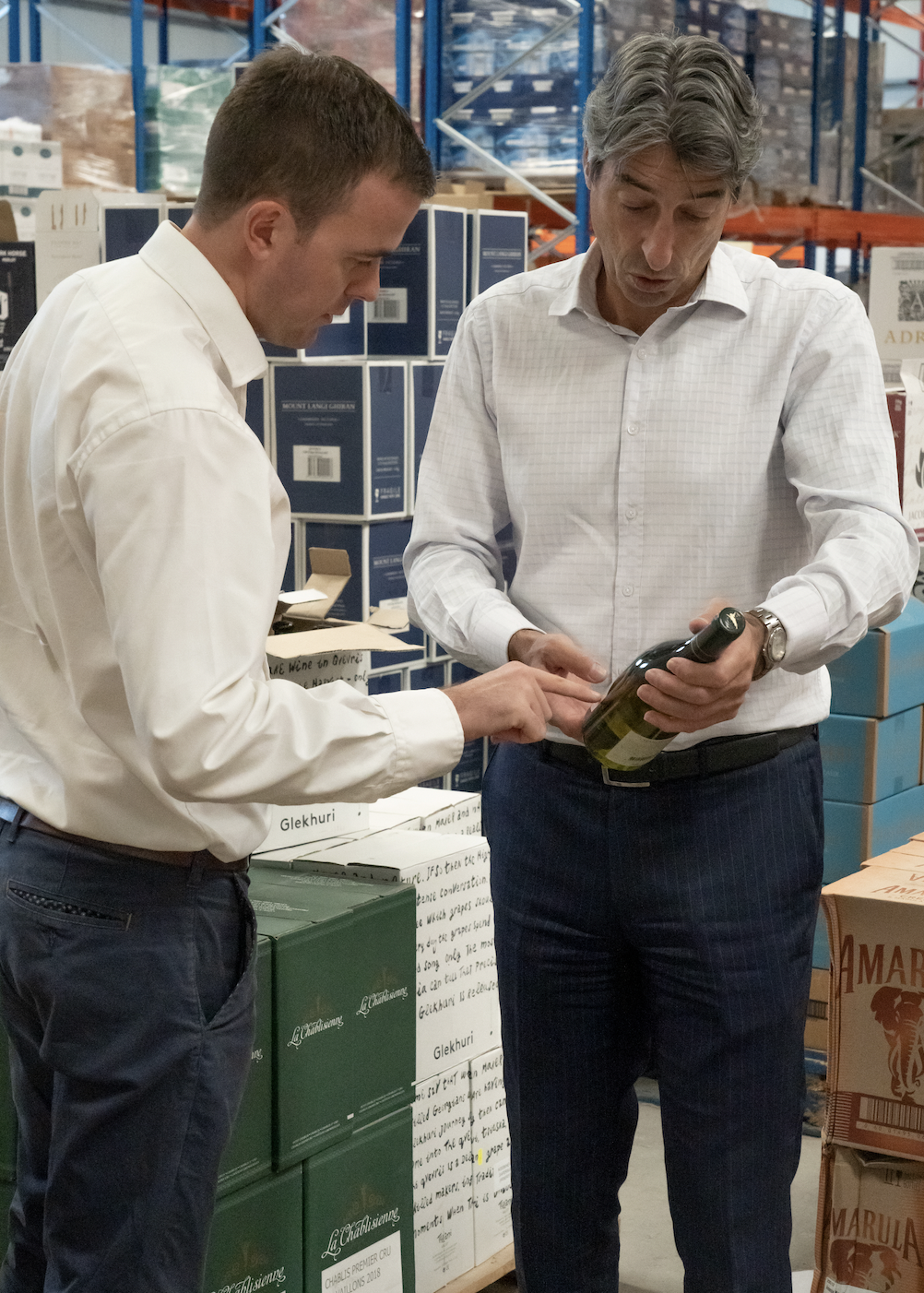
Our German or Spanish ranges also had that UK influence; now we are covering all of those countries’ great wine growing areas.
Traditionally an IDS drinks range would have been around 1,000 products, whereas now it’s is 2,500, and if it’s on the website, it’s in stock. We have put a lot finance behind this and employed people to make it seamless and a great service.
We have a grocery range of 3,500 products, we have 500-600 French wines, 350 Italian and 350 Spanish wines bought directly from great vineyards, with plenty of the offer focused on biodynamic and organic where we can.
If we can source those, or find the right Hungarian brandy or Polish vodka and get it to those diplomats who want that product, wherever they are in the world, that is what we aim for, that is the idea.
And so employing people from those markets to service that demand is key?
Yes that’s important for knowing the brands and for understanding the customers. So if the Italian diplomat says ‘I love this liqueur from Perugia’ our person can say, ‘I know that, I’ll find it for you.’ It is just getting to the root of our customer’s need and sourcing it.
Will the big international brands remain dominant in the mix and broadly do you see the assortment changing?
Yes the major brands, especially in drinks, are probably 80% of the business. Johnnie Walker, Chivas Regal, Bacardi, Grey Goose are all important, as are others. But we try to offer alternatives too. We sell by the bottle in most markets so customers can buy a mix. That might mean Whitley Neill gin, for example, which people are curious about. And that blend means you can mix up your drinks cabinet at home, plus the embassy will have an increasingly diverse selection behind their bars. We love to see that diversity.
Beyond the core, that’s where the other 20% of local or regional goods becomes so important. We have chosen Spanish and Italian gins as well as British, meaning the offer becomes a place for interest and curiosity. We sent the offer to our NATO partners the other day, and I was really proud of what we had done when I looked at that range.
We also have tobacco, Cuban cigars and cigarettes, and a full range of perfumes & cosmetics. We have been asked for luxury watches though this is not something we have done before at a luxury level. We have not had much contact with the brand leaders about supplying diplomats but we know there is demand there. We are 24 years into our journey but we are learning that once you push into new markets, or do business with new nationalities there is demand for a new product range. We will try to satisfy that.
[Click on the icon to listen to the Patrick Doyle Podcast from 1 July 2020]
Does tailoring demand in this way add complexity and therefore cost?
It would if you had lots of small companies doing that, with their own buying and financial teams. But we have the same IDS executive management, the same team and customer services will be handled from Dubai. It’s all online now so it’s a question of adding to our website, and we have taken on some salespeople. We feel we can be competitive and innovative.
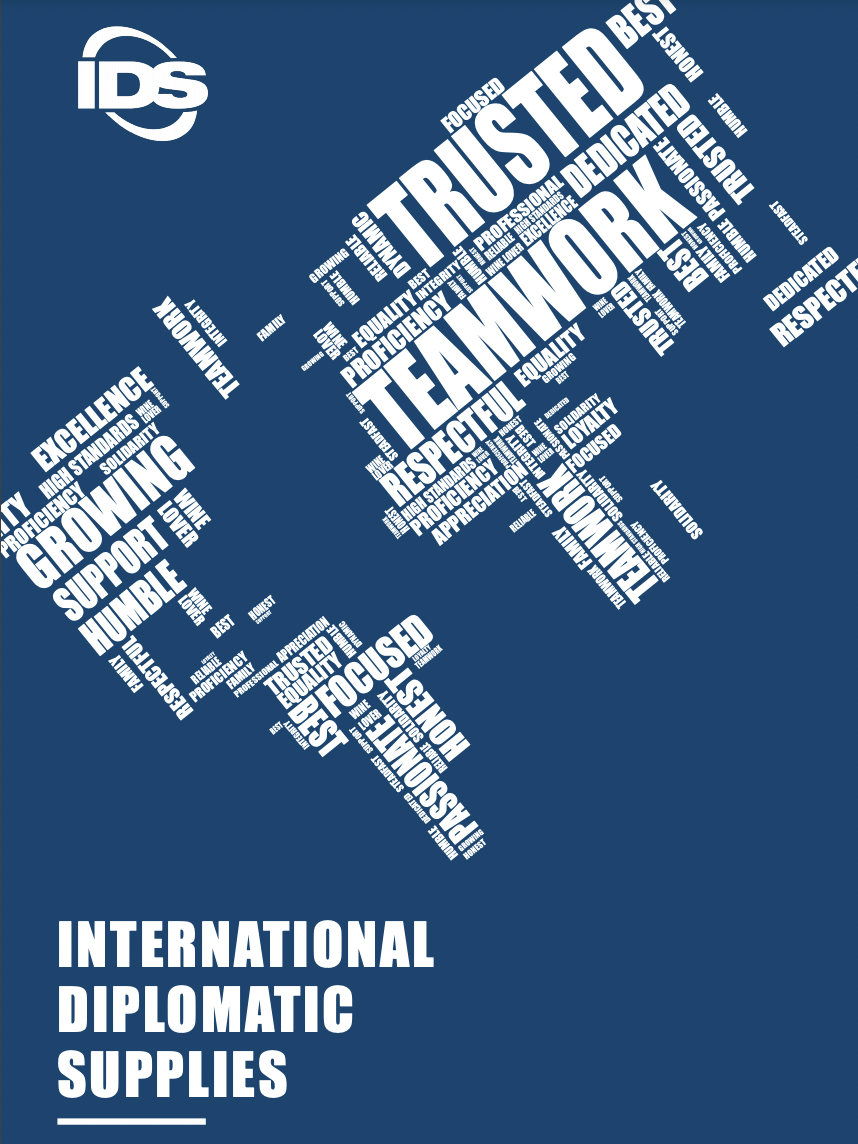
You opened an IDS office in Miami last year. What has been the impact?
From making the decision on 2 July 2020 to creating a new division, sourcing and partnering with brands, employing people, opening a bank account, and launching with warehouse and US$1million worth of stock, took until October. And by that time I had not even been to Miami.
We feel our service has been great. We have a long way to go but we are already talking to US embassies about repeat orders. It has helped us grow our business, with for example, new accounts in Latin America. And because I had a clear view of how that worked, I approached 2021 with a firm plan for Europe.
To touch on the structure of the business, do you have many fixed contracts with embassies or is diplomatic supply simply about delivering the best service at the best price every time?
It’s competitive. We have a few contracts with international organisations but every single embassy order is up for grabs every single time. You have to keep improving your range and keep being competitive. It’s not easy. You gear a business for a certain number of staff, investment and stock levels to offer a service, but none of that is guaranteed so you have to be on your toes and superbly accurate on your stock picking every time. And we as a team are on top of every detail to make sure service is perfect.
Worldwide, each IDS operation runs as a separate business. IDS UK supplies the foreign embassies in London but also in West Africa, some of North Africa and some UK embassies around the world that buy from the UK range. From Miami the US embassy in Tunisia will place an order for their State Department personnel. That is then packed and labelled for each diplomat and shipped from Miami or one of the northern ports and it’s delivered to the families there.
We don’t have any physical stores, not yet at least. Everything now is digital and because we follow the UN Sustainable Development Goals blueprint we don’t produce brochures any more. These were 400 pages each with thousands of copies being sent around the world. So it was part of our commitment to the planet to stop producing those. But it’s also a much more dynamic way to sell. If someone comes to us with a vodka and we want to add it to the offer, we can do it fast. Before, you had to make that decision in February for a brochure coming out in Summer and it then lasts for another year. Today, we can guarantee that everything on the website is in stock. We decide, implement and can ship the goods to be available everywhere in a short time.
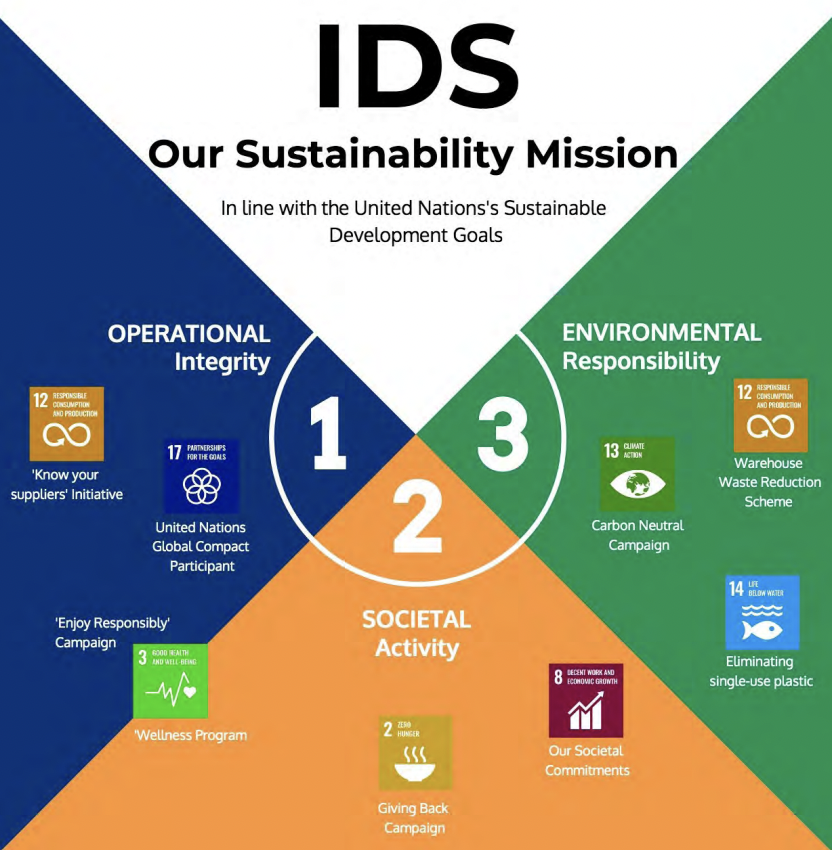
Tell us about business performance, the impact of COVID-19 and your wider targets.
COVID-19 had an impact for sure. It was a rollercoaster. In some places diplomats were pulled out in the first phase so we had cancelled orders amid the downturn. But once they went back, we saw the benefit of those people eating or entertaining at home, not going to restaurants and because we sell groceries we saw a big upturn. Over the piece it turned out positively through 2020 as orders increased. Last year was our best ever year and Q1 2021 was our best quarter yet.
As a company we’re ahead of target for the first six months of 2021. We are forecasting +20% growth this year, and aiming for +20% growth a year for the next four years after this, taking us to US$100 million turnover by then.
What’s driving that? Much of it is additional business from existing markets. So where we might have served two or three embassies in East Africa we’re now doing 12 to 15. We can deliver more often and that is where the growth is coming from, with some new accounts and new markets out of Miami.
By launching in Miami we have entered new markets supplying American embassies with a US-focused offer from bourbon to craft beers, and 3,000-4,000 grocery items from the Americas. That will grow, Europe will grow and there is a knock-on impact to the rest of the business. If you buy 500 French wines you can supply these to other operations and regions that can benefit. It’s exciting. We are confident that we have great coverage of the world, we have the platform to grow sustainably and the attitude to just make it happen.
How do you see the future of your business and of the diplomatic sector? Do you have concerns about how the business is viewed by some brands?
For some people diplomatic translates as ‘parallel’. That is not new but I heard it even when I was trying to open new accounts for our Miami business recently. But I would invite anyone to check what we do and even to look at our books. Not a single bottle leaves our company unless it’s going to an international organisation or an embassy.
I’m running a business that is built on service. We deliver service into 60 countries from China to Colombia and many places in between. And if after 20 years of doing business you pick up the phone to a potential supplier and they say ‘I don’t want to go into diplomatic because it’s going to parallel’ it is infuriating.
It is some of our competitors who have made that the case. And if those businesses fall by the wayside because they work on single-digit margins and half or two-thirds of their business is sold into other channels, then I wouldn’t be sorry to see the back of them.
I can say this very clearly: we will never, ever sell anything outside our channel. I want to get that message clearly to brand owners. Diageo came to look at what we do and they can verify that. Nothing goes out of here to somewhere it shouldn’t. So we can say we start from a good place, with the trust and support of Diageo, Pernod Ricard and other leading brands.
Last year you spoke to us about the importance to you and the company of giving back. Tell us about your latest initiatives.
I had a lot of positive messages from people about my conversation with Martin a year ago. Yes this is something that is very important to me. Our intention is to add a new charity every year, among those who come to us in very clear ways about what they do. It will always be a big part of what I am and what we do in our business.
Much of the inspiration comes from remarkable people who have just seen things that are wrong and have decided to turn it around. What matters is that somebody has identified the need and the money goes to sort out the issue on the ground, That’s what we try to do, send it directly to the charity, not just send to a large organisation with a well-paid CEO sitting in London or somewhere else. It goes directly to fix the problem. We want to make a difference, and doing that creates the opportunity to do more in turn.
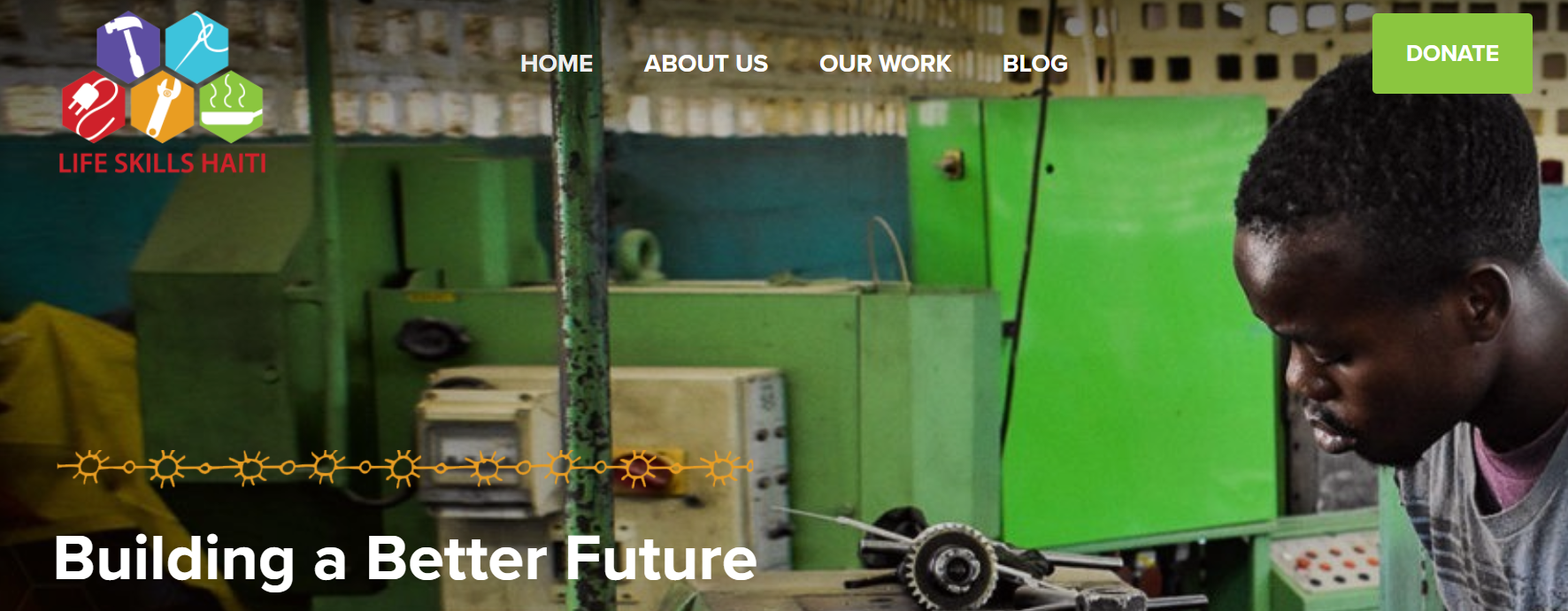
So when we opened IDS Miami we adopted an organisation called Life Skills Haiti, which is run by a former Haiti Ambassador to London, Jean Pillard, who I got to know in his time there. He called me and we spoke about ideas and how we might raise some funds.
He told me the story of a young girl who signed up for a nursing programme in Haiti, but the fees were US$1,500. Her family could not afford to fund her although she was the best and brightest student of her age. Her mother even went with her to the organisers to say ‘do you want money or do you want nurses?’
So here you have a young girl who is desperate and the thing that stops her succeeding is money, and a relatively modest sum. When I heard that I was incredulous. So I said once we launch IDS Miami we will pay for ten nurses’ training. But we have gone further. Once an embassy reaches US$100,000 in sales with us, we fund another nursing scholarship, we invite the embassy to fund a nurse too, and if they do that, we agree to fund another one.
So every time an embassy reaches US$100,000, potentially three nurses get a scholarship. In fact the US Embassy in Tunis has just done this, so we will be announcing to Life Skills Haiti that three new nurses will join on scholarships from September from this one client. We just heard of another embassy to have passed that mark, so we will do three more now too.
Over time it makes a difference, and you are only talking about 1.5% of the turnover of an embassy client. It’s a difference you can make to the person, the family and the community. It also means you are not relying on aid so much. You are helping to build an economy. But the key is that it is something that can be funded sustainably. We will do so much more of this in future.
| A growing global force International Diplomatic Supplies (IDS) was started in 1997, originally supplying embassies in London, as well as exports from the English capital to British embassies around the world. The business grew steadily and in 2010 IDS Dubai was created from the merger with Intagulf in the port hub of Jebel Ali in Dubai. This gave IDS operations in both the UK to focus on the London market, as well as exports to Europe, North and West Africa; and operations in Dubai to focus on East Africa, the Middle East, the Indian Sub-Continent and Asia. In the past year, IDS has opened IDS Miami and IDS Europe to serve a wider client base worldwide. |
Profiling some of International Diplomatic Supplies’ key CSR programmes
| Gentle Hands is a Christian social welfare agency in Metropolitan Manila. With a ‘There is hope in love’ tagline, the charity aims to offer a centre for the rescue and healing of children in crisis. Its mission is to provide family-style care and hope for children who have experienced trauma; its goal to bring holistic intervention to every child in its care. The Gentle Hands 24-hour Residential Care Facility provides medical, nutritional, home life, educational, recreational, adoption counselling and Christian living programmes to orphaned, neglected and abandoned children in the Philippines. |


| Shamida Ethiopia aims to empower the country’s most vulnerable women and children. The charity highlights Ethiopia’s social problems which have been increasing at an alarming rate due to poverty, HIV, diseases, drought and conflict. The number of orphans and vulnerable children is increasing rapidly. 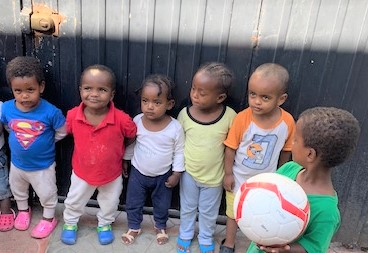 Shamida’s mission is to contribute towards the holistic development and self-sufficiency of women and children in difficult destitute circumstances. Its work includes providing housing for orphans and the reunification of street children with their families or guardians. |









